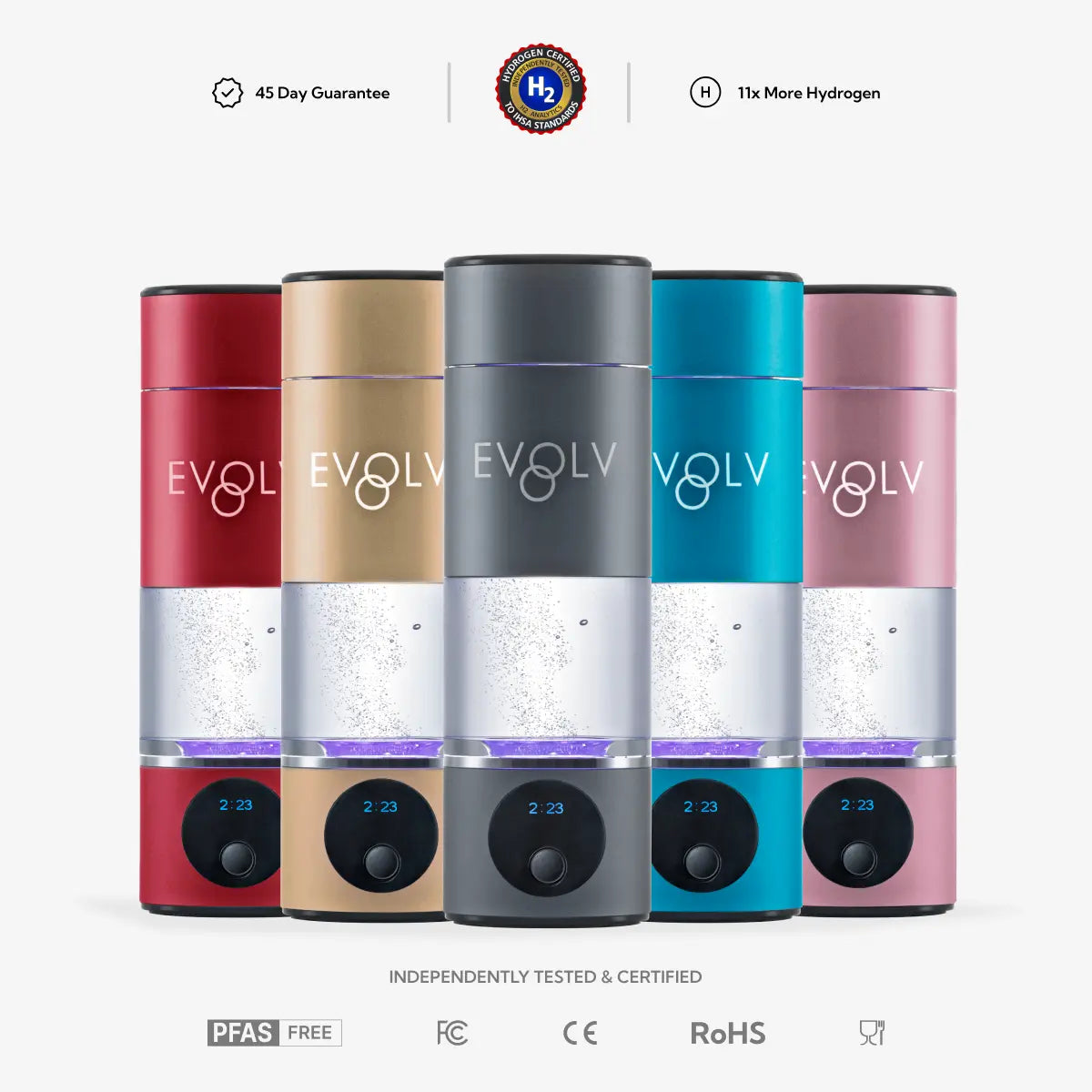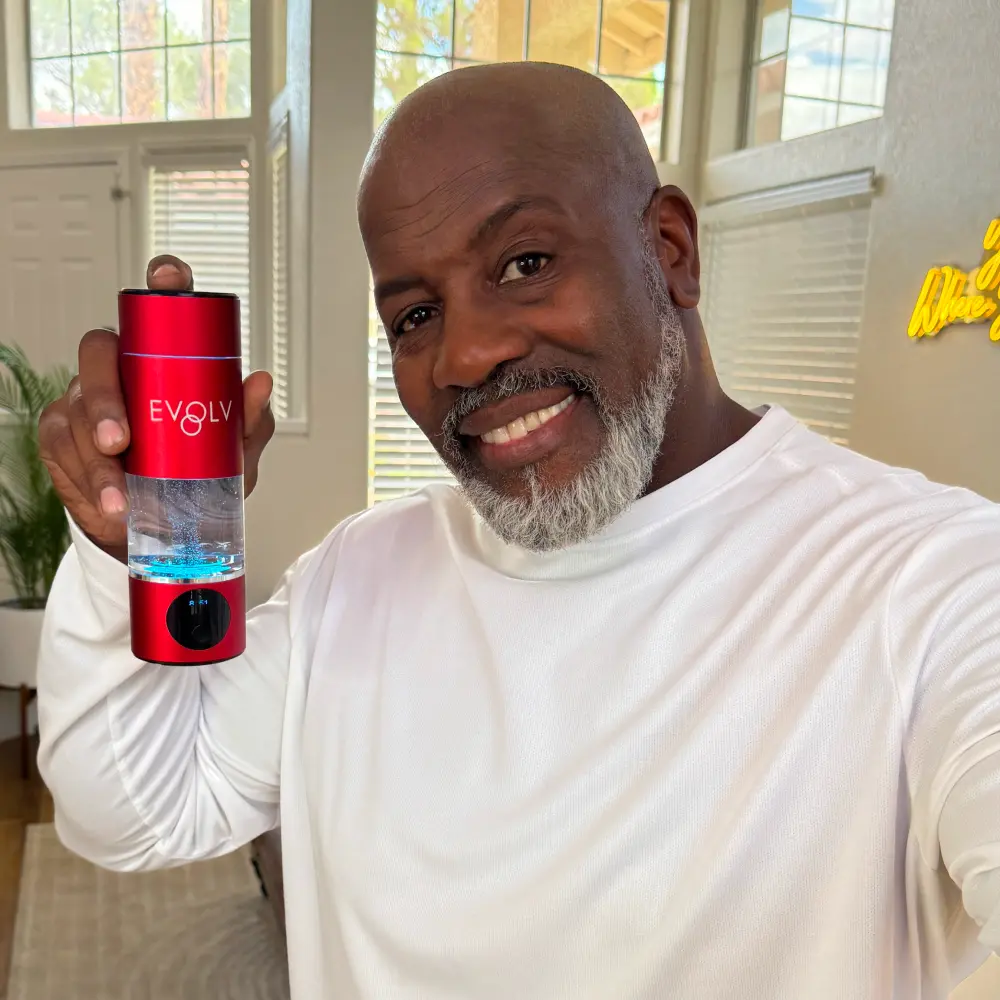
Water is more than just a thirst quencher; it’s the foundation of health and vitality. In recent years, wellness trends have shined a spotlight on hydrogen water and ionized water, sparking curiosity and debate. While both types of water promise health benefits, they differ significantly in their composition, purpose, and effects on the body. This has left many wondering, “Is hydrogen water the same as ionized water?” Let’s unravel the science behind these two types of water, explore their unique properties, and clarify why they are not interchangeable. Spoiler alert: hydrogen water and ionized water serve distinct purposes, and understanding their differences is essential for making informed wellness choices. From the powerful antioxidant properties of molecular hydrogen to the pH-altering characteristics of ionized alkaline water, each offers a different approach to hydration and health. Whether you’re curious about the difference between hydrogen and ionized water, interested in the benefits of hydrogen water, or evaluating ionized water health claims, this guide provides all the answers you need to navigate this popular wellness trend.
Hydrogen vs Ionized Water: Core Differences
Although hydrogen water and ionized water are often discussed together in the wellness space, they are not the same. While both involve water treated by special processes, they differ significantly in terms of composition, function, and benefits. Here's a clear comparison based on specific parameters:
| Parameter | Hydrogen Water | Ionized Water |
|---|---|---|
| Definition | Water infused with molecular hydrogen (H₂) gas. | Water that has been ionized to increase its pH (alkaline water) or decrease it (acidic water). |
| Primary Focus | Provides antioxidants to neutralize free radicals. | Balances body pH by altering water’s acid-alkaline ratio. |
| Production Method | Created via hydrogen infusion or electrolysis that maximizes hydrogen concentration. | Produced by ionizers that separate water into alkaline and acidic streams through electrolysis. |
| pH Level | Typically neutral (around 7), unless combined with ionization. | Elevated pH (alkaline water usually between 8–10). |
| Key Benefit | Reduces oxidative stress and inflammation. | Helps neutralize excess body acidity and improve hydration. |
| Taste | Similar to pure water, no noticeable taste. | May taste slightly bitter or "slippery" due to higher pH. |
| Scientific Research | Supported by studies highlighting antioxidant and anti-inflammatory effects. | Limited scientific evidence supporting claimed health benefits. |
| Best Use Case | Those seeking antioxidant support and faster recovery. | Those wanting to manage acid reflux, balance pH, or support general hydration. |
What Is Hydrogen Water?
Hydrogen water is water infused with molecular hydrogen (H2), a powerful antioxidant that has been the focus of numerous scientific studies. Unlike ordinary water, which only quenches thirst, hydrogen water contains dissolved hydrogen gas that offers potential therapeutic benefits. Molecular hydrogen is small enough to penetrate cell membranes, making it an effective agent for combating oxidative stress and reducing the damage caused by free radicals. The process of making hydrogen water often involves the use of specialized hydrogen water bottles, machines, or tablets that release molecular hydrogen into the water. These devices ensure that the hydrogen gas is effectively dissolved, maintaining its stability and potency until consumption. This simple yet transformative addition turns plain water into a wellness booster with a wide range of potential applications, from reducing inflammation to supporting metabolic health. Studies suggest that hydrogen water may help improve energy levels, enhance athletic performance, and promote overall well-being. It has even been explored for its role in reducing the risk of chronic diseases, such as cardiovascular conditions and diabetes, by targeting oxidative damage at the cellular level.
Benefits of Hydrogen Water
Antioxidant Properties: Molecular hydrogen neutralizes free radicals and reduces oxidative stress, which may help combat chronic diseases.
Supports Energy Levels: By reducing inflammation, hydrogen water may enhance physical performance and energy.
Protects Cellular Health: Research suggests hydrogen water can aid in preventing cell damage and promoting longevity.
Oxidative Stress Reduction: Studies link hydrogen water to improved outcomes in conditions like cardiovascular diseases and diabetes.
What Is Ionized Water?
Ionized water, on the other hand, is created through a process called electrolysis, which is performed by a water ionizer. This device uses an electric current to separate regular water into two streams: alkaline and acidic. The alkaline stream, rich in hydroxide ions (OH-), is often touted for its potential health benefits, such as balancing the body’s pH levels and improving hydration. The acidic stream is generally used for cleaning or cosmetic purposes. Alkaline ionized water is believed to neutralize acidity in the body, promoting an internal environment that some claim is less hospitable to disease. Additionally, proponents suggest that its altered molecular structure allows for better hydration at the cellular level. However, it’s important to note that ionized water doesn’t typically contain molecular hydrogen, which means it lacks the potent antioxidant properties associated with hydrogen water. The benefits of ionized water are primarily linked to its pH-altering characteristics and electrical charge, but the scientific community remains divided on its efficacy. While some studies highlight potential benefits, others argue that the body’s natural buffering systems make these claims redundant. Regardless, ionized water has gained popularity as a wellness trend, with enthusiasts using it for hydration, detoxification, and even anti-aging purposes.
Potential Health Benefits of Ionized Hydrogen Water
Antioxidant Support & Oxidative Stress Reduction
Molecular hydrogen in ionized hydrogen water acts as a selective antioxidant, neutralizing harmful free radicals while preserving beneficial reactive species. Studies show that hydrogen water may reduce oxidative stress linked to aging and chronic conditions like diabetes and cardiovascular disease (Nakao et al., 2010; Ohsawa et al., 2007).
Digestive Health and pH Balance
The alkaline component of the water may help balance stomach acidity and support digestion. A 2012 study found that alkaline water with a pH of 8.8 could deactivate pepsin, suggesting potential benefits for those with acid reflux or mild gastrointestinal discomfort (Koufman & Johnston, 2012).
Enhanced Hydration
Some proponents argue that the ionization process alters the water structure, allowing for faster absorption and improved hydration. While this claim is less scientifically proven, many users report feeling more hydrated after switching to ionized water.
Support for Energy and Recovery
By reducing inflammation and supporting mitochondrial health, hydrogen has been shown to aid in muscle recovery and energy metabolism, beneficial for active individuals and athletes (Song et al., 2013).
The Key Differences Between Hydrogen Water and Ionized Water
Molecular Composition: Hydrogen water contains molecular hydrogen (H2), a proven antioxidant capable of penetrating cell membranes and neutralizing harmful free radicals. This unique property sets it apart as a potent agent for reducing oxidative stress. On the other hand, ionized water focuses on altering pH levels by creating streams of alkaline and acidic water through electrolysis. Unlike hydrogen water, it does not necessarily include molecular hydrogen, which limits its antioxidant capacity.
Health Focus: Hydrogen water primarily targets oxidative stress, which is linked to aging and various chronic conditions. By reducing free radical damage, it supports cellular health and overall vitality. In contrast, ionized water is marketed for its potential to balance the body’s pH levels. Proponents claim that alkaline water can neutralize acidity, aiding in digestion, hydration, and detoxification. However, the body’s natural buffering systems often make these claims less significant.
Technology Used: Hydrogen water is produced using advanced hydrogen-infusing machines, bottles, or tablets that dissolve molecular hydrogen directly into the water. These devices are specifically designed to maintain the stability and bioavailability of hydrogen gas. Ionized water, on the other hand, requires a water ionizer, which uses an electric current to separate water into alkaline and acidic streams. The process emphasizes pH alteration rather than molecular composition.
Scientific Backing
Hydrogen water has a growing body of scientific studies supporting its health benefits, particularly in reducing oxidative stress and inflammation. For instance, a clinical trial showed that drinking hydrogen-rich water for 8 weeks significantly reduced oxidative stress in patients with metabolic syndrome (Nakao et al., Journal of Clinical Biochemistry and Nutrition, 2010). Another foundational study demonstrated that molecular hydrogen selectively reduces cytotoxic oxygen radicals, offering potential protection against neurodegenerative diseases (Ohsawa et al., Nature Medicine, 2007). Additionally, a pilot study in patients with rheumatoid arthritis reported reduced oxidative stress and decreased disease activity after just 4 weeks of hydrogen water intake (Ishibashi et al., Medical Gas Research, 2012).
In contrast, claims about ionized water often rely more on anecdotal evidence or studies with less rigorous methodologies. One study suggests that alkaline water with a pH of 8.8 may help deactivate pepsin, an enzyme linked to acid reflux symptoms (Koufman & Johnston, Annals of Otology, Rhinology & Laryngology, 2012). However, large-scale and peer-reviewed studies validating broader health benefits like detoxification or disease prevention are still lacking, making ionized water’s efficacy a topic of scientific debate.
Other Considerations: Beyond these key differences, it’s essential to understand the practicality and cost of these technologies. Hydrogen water machines and bottles are becoming more accessible and affordable, making them a viable option for many health-conscious individuals. Ionizers, while effective at altering pH, can be more expensive and may not deliver the same scientifically proven benefits as hydrogen water. Understanding your specific wellness goals is crucial in choosing between these two options.
Is Hydrogen Water Better Than Ionized Water?
When it comes to health benefits, hydrogen water may have the edge. Research shows that molecular hydrogen can neutralize harmful free radicals, reduce oxidative stress, and support cellular health. These scientifically backed benefits make hydrogen-infused water particularly appealing for those seeking proven wellness solutions. Unlike ionized water, which focuses on pH alteration, hydrogen water directly targets oxidative damage at the cellular level, making it a standout choice for individuals looking to optimize their health and energy levels.
Ionized water, with its altered pH, is more controversial. While proponents claim it improves hydration, detoxification, and balances the body’s acidity, skeptics argue that the body’s natural buffering systems render these effects unnecessary. Additionally, the lack of substantial scientific evidence supporting the health claims of ionized water has made it a less reliable option for those prioritizing evidence-based wellness practices.
For individuals looking to experience the benefits of molecular hydrogen firsthand, the EVOLV hydrogen water bottle offers an innovative and convenient solution. This cutting-edge bottle is designed to infuse water with molecular hydrogen, ensuring you get the maximum antioxidant properties with every sip. Its portability and efficiency make it an ideal choice for anyone wanting to incorporate hydrogen water into their daily routine. Whether you’re an athlete, a wellness enthusiast, or simply someone looking to enhance your hydration, the EVOLV hydrogen water bottle is a reliable companion for supporting your health goals. Ultimately, the choice between hydrogen water and ionized water depends on your wellness priorities. If you’re seeking a proven, science-backed approach to reducing oxidative stress and improving cellular health, hydrogen water, especially when made with the EVOLV hydrogen water bottle, is the superior choice.
Comparing Hydrogen Water and Alkaline Ionized Water Machines
When choosing between hydrogen water machines and water ionizers, consider your health goals. Hydrogen water bottles and machines, such as the EVOLV hydrogen water bottle, focus on infusing molecular hydrogen, offering proven antioxidant benefits that directly support cellular health and reduce oxidative stress. Ionizers, on the other hand, emphasize pH alteration without necessarily delivering molecular hydrogen, making their benefits more aligned with balancing pH levels rather than targeting oxidative damage. If your priority is reducing oxidative stress and achieving wellness backed by scientific evidence, hydrogen water, and the convenient design of the EVOLV hydrogen water bottle, is likely the better choice. However, if you’re intrigued by the idea of balancing pH levels or experimenting with hydration options, ionized water may appeal to you. By understanding the unique strengths of each, you can select the option that aligns best with your health goals.
Cost-Benefit Analysis: Investment vs. Results
When choosing between hydrogen and ionized water technologies, cost is a major factor.
Hydrogen Water Costs
Initial Investment: Hydrogen water bottles range from $80 to $300. Premium hydrogen generators can exceed $1,000.
Ongoing Costs: Minimal-recharging, occasional filter replacement, or hydrogen tablets if used.
Benefit Efficiency: Backed by peer-reviewed research; antioxidant, anti-inflammatory, and recovery-enhancing benefits make this a high-ROI option, especially for athletes and wellness-focused individuals.
Ionized Water Costs
Initial Investment: Water ionizers typically range between $1,000 and $4,000, depending on brand and features.
Ongoing Costs: Filter replacements every 6–12 months can cost $100–$300 per unit.
Benefit Efficiency: Useful for users with chronic acid reflux or pH sensitivity. However, health claims are less scientifically validated than those of hydrogen water.
Real-World Applications: Where Each Water Type Excels
Athletic Performance & Recovery- Hydrogen Water is ideal for athletes or fitness enthusiasts due to its role in reducing muscle fatigue, inflammation, and oxidative stress post-workout.
Managing Specific Health Conditions
Hydrogen Water: May support those with cardiovascular, metabolic, or neurodegenerative conditions due to its antioxidant properties. Ionized Water: Sometimes used by individuals with acid reflux or gastrointestinal discomfort.
Daily Wellness Routines
Hydrogen Water: Ideal for long-term wellness, cellular support, and anti-aging routines. Ionized Water: May suit users focused on pH balance and general hydration.
Travel & Convenience- Hydrogen bottles and tablets are portable, making hydrogen water a convenient on-the-go choice. Ionizers are stationary units best suited for home use.
Hydrogen vs. Ionized Water: What’s True and What’s Not?
Does Ionized Water Contain Molecular Hydrogen?
A common misconception is that ionized water automatically contains molecular hydrogen. In reality, most ionizers don’t generate significant amounts of hydrogen gas. This distinction underscores why hydrogen water and ionized water are not the same. Molecular hydrogen’s unique ability to combat oxidative stress gives hydrogen water a distinct advantage, making it more appealing for those seeking targeted antioxidant benefits. In contrast, ionized water primarily alters pH levels, which may not provide the same level of health impact.
Others: Myth-Busting Q&A
Is ionized water the same as hydrogen water?
No. Ionized water refers to pH-altered water, while hydrogen water specifically contains dissolved molecular hydrogen. The two are often confused but serve different health functions.
Is ionized water the same as alkaline water?
Yes, in most cases. Ionized water often refers to alkaline water generated through electrolysis. However, not all alkaline water is ionized—some are simply mineral-enhanced.
Do all water ionizers produce hydrogen-rich water?
No. Many standard ionizers do not generate meaningful levels of molecular hydrogen. Only specially designed hydrogen-generating ionizers can produce water rich in H₂.
Scientific Studies on Hydrogen Water vs. Ionized Water
Hydrogen water’s health benefits are backed by a growing body of research. Studies have explored its role in reducing oxidative stress (Nakao et al., J Clin Biochem Nutr, 2010), improving energy metabolism (Song et al., Medical Gas Research, 2013), and protecting organs from damage caused by free radicals (Ohsawa et al., Nature Medicine, 2007). These findings emphasize the unique advantages of hydrogen water in promoting long-term health and managing conditions like metabolic syndrome, cardiovascular diseases, and neurodegenerative disorders (Ishibashi et al., Medical Gas Research, 2012).
Conversely, ionized water’s health claims often rely on anecdotal evidence rather than rigorous scientific studies. While some research suggests that altering pH levels could offer minor benefits—such as reduced pepsin activity to alleviate acid reflux symptoms (Koufman & Johnston, Ann Otol Rhinol Laryngol, 2012)—these claims lack the extensive validation seen with hydrogen water. Broad assertions about detoxification and improved hydration from ionized water remain scientifically unproven in large-scale, controlled studies.
Which Is Healthier: Hydrogen Water or Ionized Water?
The answer depends on your wellness goals: If you’re looking for science-backed antioxidant properties and targeted cellular protection, hydrogen water is the clear winner. If you’re interested in pH balancing and hydration as part of a general wellness approach, ionized water may be worth exploring. Understanding the differences between these types of water allows you to make an informed choice that aligns with your health objectives. For those prioritizing scientifically validated benefits, hydrogen water stands out as a powerful option for enhancing well-being.
Ionized & Hydrogen Water: The Best of Both Worlds
Ionized hydrogen water combines the best of both worlds: it offers the antioxidant power of molecular hydrogen and the pH-balancing benefits of alkaline water. Created through advanced electrolysis, this type of water supports cellular health while also aiding digestion and hydration, making it a well-rounded option for everyday wellness.
Who Will Benefit the Most?
Hydrogen water is ideal for those seeking science-backed health benefits with the most impact. Its powerful antioxidant properties make it especially beneficial for people managing oxidative stress, chronic inflammation, fatigue, and conditions related to cellular damage. Athletes looking for faster post-exercise recovery, individuals aiming to support brain and heart health, and anyone focused on long-term wellness will find hydrogen water a superior choice. Unlike ionized water, which focuses mainly on pH balance, hydrogen water delivers targeted support at the cellular level, making it the preferred option for health-conscious users who want proven results.
Final Thoughts: Is Hydrogen Water the Same as Ionized Water?
In summary, hydrogen water and ionized water are fundamentally different. Hydrogen water focuses on infusing molecular hydrogen for its antioxidant benefits, while ionized water emphasizes altering pH levels. For those seeking tangible health benefits supported by science, hydrogen water may be the better choice. However, if you’re curious about the potential of pH balancing, ionized water might appeal to you. Either way, understanding the differences between these two types of water is crucial for making informed decisions about your health and hydration.









